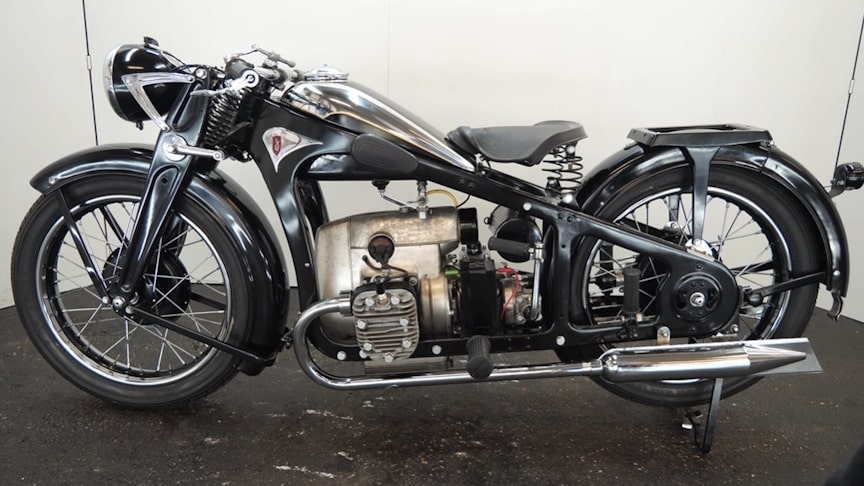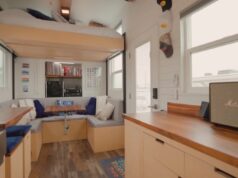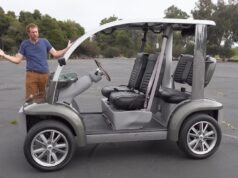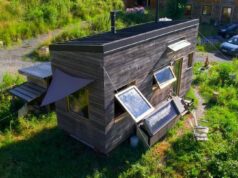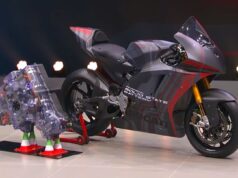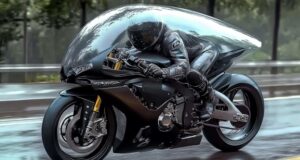This well-designed transverse twin bike has been restored to a highest standard with great details and many of love. She runs lovely like clockwork.Zündapp found a new role post-war as a producer of motorcycles under the direction of new owner, Dr Fritz Neumeyer, building its first machine, a Levis-powered two-stroke, in 1921.
source.image: classic-motorcycle.com
The firm began making its own engines in 1924, selling more than 10,000 machines that year, and at the Berlin Motor Show in 1933 introduced the first of the horizontally opposed, four-stroke twins that it is best remembered for. These formed part of an extensive and diverse range of models, all but the smallest two-stroke being designated by the letter ‘K’ (for kardan, meaning ‘shaft’).
Among the models premiered were the K400 and K500 sidevalve twins, both of which employed designer Richard Küchen’s unconventional all-chain four-speed ‘gearbox’ and, as the designation suggests, shaft final drive. Introduced at the same time was another Küchen design: a horizontally opposed four made in 598cc (K600) and 798cc (K800) capacities.
Advertisement
Common to all the larger models and eminently suited to withstanding the stresses and strains imposed by travel on unmade roads, the robust frame and girder forks were made of pressed steel, an advanced feature at the time. The new Zündapp range was an enormous success, and in September 1933 the firm produced its 100,000th machine, quite an achievement after little more than a decade as a motorcycle manufacturer.

